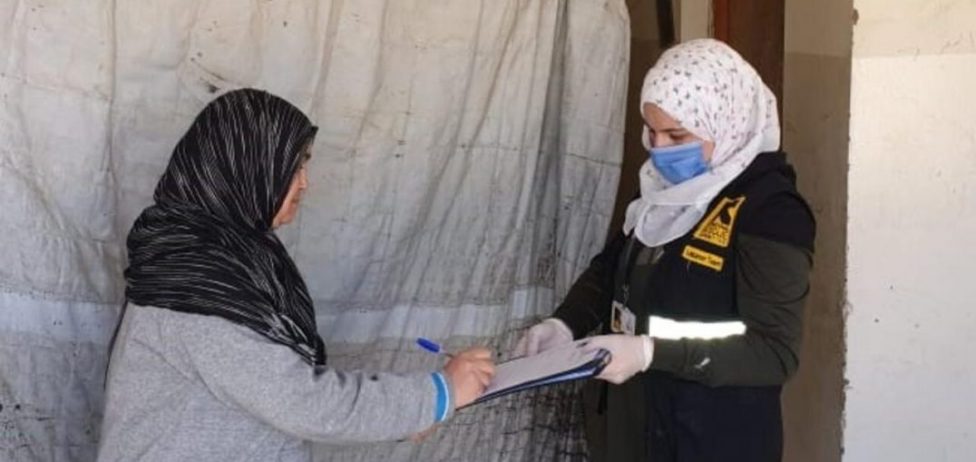
Executive summary: the gendered experience of close-to-community providers in Lebanon
This brief (read it here) summarises a report produced by the team at American University of Beirut. It was produced as part of the Lebanon strand of the ‘The gendered experience of close-to-community providers in fragile and shock-prone settings during the COVID-19 pandemic’ study (more on that work here).
The report concludes that male and female close-to-community providers have very different lived experiences of the COVID-19 pandemic in Lebanon, with women often disadvantaged in terms of their family, social, legal and professional lives. Recommendations are outlined as to how some of these disadvantages might be addressed.
- A presentation outlining this work in Lebanon can be watched here (watch from 29:40)
- Recommendations for managers of female close-to-community health workers
- More on the overall study including outputs from other contributors
Image: The IRC provides emergency cash relief to vulnerable people in Lebanon, and has launched an emergency response in Beirut. Photo: IRC